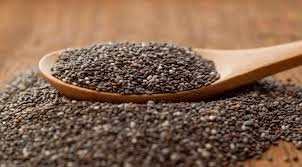Vegetarian or Vegan? Try These Complete Proteins!
Protein is important for vitality; we simply could not exist without this essential nutrient. Many people choose to common sources of protein, such as meat, eggs and dairy, however if you're a vegetarian or vegan, these foods are not on the menu. For these individuals, getting complete protein from plant foods is essential, as a deficiency can have serious health consequences.
The function of protein in the body is far-ranging. It is crucial in the formation, development and repair of cells, tissues, muscles and organs. It also provides us with energy, and is instrumental in the production of antibodies and hormones. Protein also aids in producing enzymes, which facilitate a number of chemical processes throughout the body.
Protein is composed of amino acids. A complete protein is characterized by the presence of the nine essential amino acids. They are called “essential” because you need to get them from your food. The nine amino acids can be derived from a single food source, or a combination of foods which together form a complete protein.
Below is a list of six complete vegan proteins to incorporate into your daily intake. Enjoy!
Chia seeds
 These little seeds are a complete source of protein, and are also abundant in fiber and omega-3 fatty acids. They are also rich in minerals, including calcium, manganese, phosphorus, iron and zinc. Chia seeds also contain tryptophan, which can help you get a better night’s sleep. Sprinkle over a salad, add to a smoothie or to your baked goods!
These little seeds are a complete source of protein, and are also abundant in fiber and omega-3 fatty acids. They are also rich in minerals, including calcium, manganese, phosphorus, iron and zinc. Chia seeds also contain tryptophan, which can help you get a better night’s sleep. Sprinkle over a salad, add to a smoothie or to your baked goods!
Hemp seeds
Hemp seeds contain all nine essential amino acids, and are also rich in fiber. They boast an optimal ratio of omega-3 to omega-6 fatty acids, and are also rich in minerals and antioxidants. These seeds are linked to reducing system-wide inflammation and hormonal balance, among many other benefits. These seeds are also great to add to a smoothie or sprinkled over a salad.
Quinoa
Quinoa, a relative of Swiss chard and beets, is another seed that functions as a complete protein. It is also high in fiber, copper, folate, magnesium, manganese, phosphorus and zinc, as well as a range of antioxidants. Quinoa seeds also contain saponins, which have been linked to antioxidant and anti-inflammatory properties. Try mixed with roasted or fresh vegetables, as a breakfast cereal or made into burgers!
Brown rice and beans
Combining a variety of whole grains with legumes forms a complete protein. For this reason, a bowl of brown rice and your choice of beans is a great protein option. Brown rice is a great gluten-free grain choice, and beans provide a variety of nutrients, including vitamin B1, a variety of minerals, and molybdenum, a trace mineral that supports the function of several enzymes.
Spirulina with nuts
The superfood blue-green algae spirulina provides nearly all of the essential amino acids in itself. It also contains a wide array of minerals, along with several B-vitamins and a number of antioxidant compounds. It provides the body with chlorophyll, which is greatly beneficial to the circulatory system, along with the digestive system and liver. When coupled with nuts, which are also mineral-rich, you get a complete protein. Add the two into your favorite smoothie for a complete protein boost or make bars like these!
Hummus and sunflower seeds









.jpg)
Comments
Post a Comment